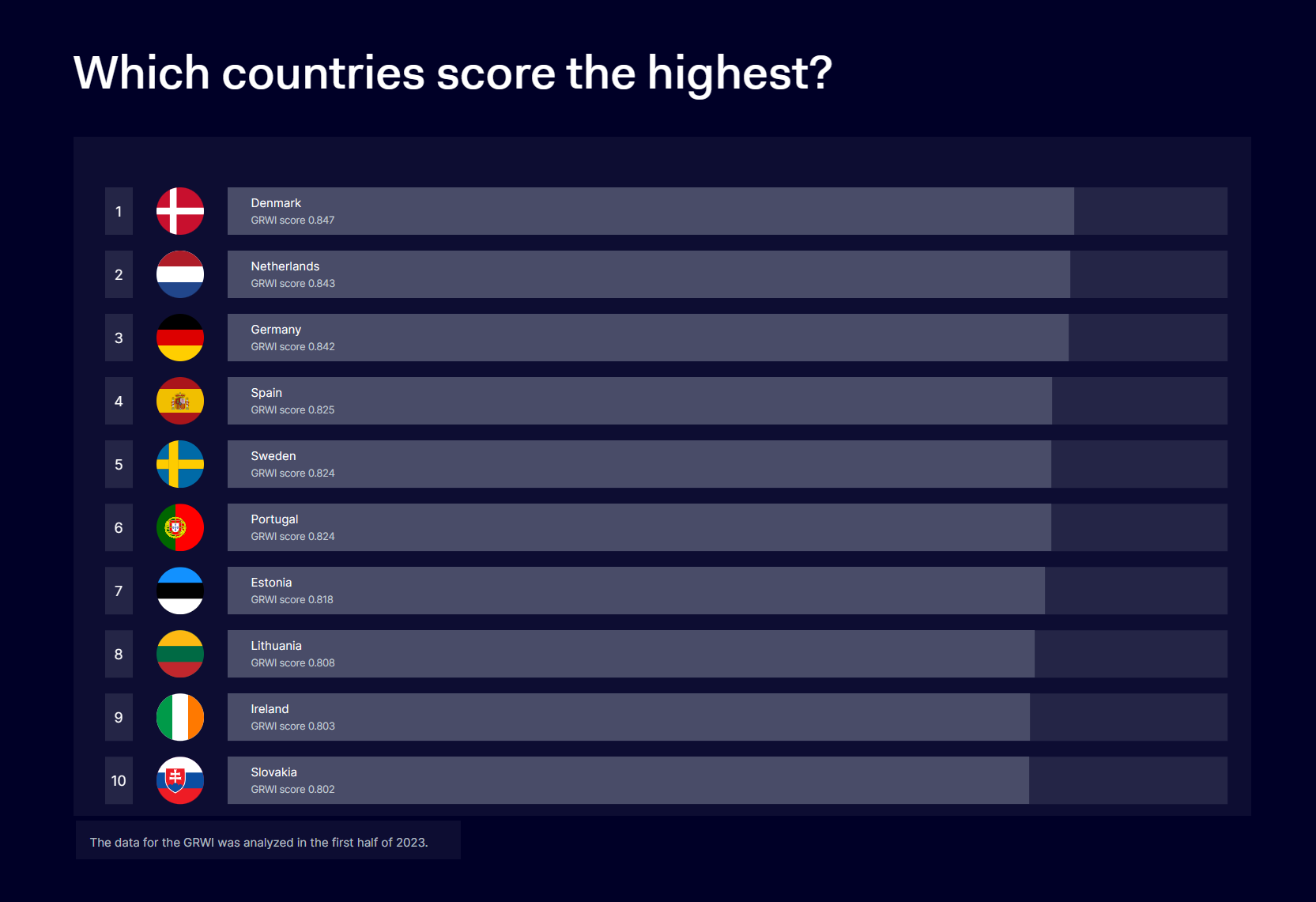In a surprising twist of events, Denmark, crowned as "a balance of modernity and social cohesion", has emerged as the reigning champion for remote workers across the globe. According to The Global Remote Work Index 2023 by NordLayer, a cybersecurity provider, Denmark claimed the coveted first position. Now, you might be wondering, "What's the catch?" Well, despite its lofty living costs and pricey internet, this small European gem dazzled the judges with its charm in social inclusiveness, internet quality, social safety, e-government, and healthcare.
But hold on to your lederhosen, because the Netherlands and Germany aren't far behind. They snatched second and third place, respectively. Germany, in particular, is getting a standing ovation for its ironclad cyber safety measures, taking the top spot worldwide for this vital indicator.
Now, you'd think it's all European countries, right? Well, close but not quite! Canada, the maverick of the bunch, lands at a respectable 14th place, and the United States shows up fashionably late in 16th place. North America, Europe, and a sprinkle of Asia are all joining the remote work party.
The top-tier countries might be a tad heavy on the wallet, but Portugal is the cool kid on the block, giving you the best bang for your buck. It's not only sitting pretty at 6th place on the list but also keeping the cost of living down at a casual 56th place. That's like having a gourmet meal without breaking the bank. But here's the catch—too many people figured it out, and now it's a race to grab that last piece of affordable real estate.
Switching gears, Asia makes its grand entrance, taking the lead in the digital and physical infrastructure category. Singapore, South Korea, and the UAE are throwing a high-tech party. Even Japan and South Korea strut their stuff, scoring major points in the social safety category.
What's the secret sauce? Well, the analysts gathered data from the first half of the year to rate over one hundred countries. They looked at cyber safety and safety, digital and physical infrastructure, and social safety. And guess what? The results are in, and Denmark has just been crowned the ruler of remote work. Grab your keyboards and celebrate, telecommuters!
Read next: US Job Growth Remains High Causing Concern for More Inflation
But hold on to your lederhosen, because the Netherlands and Germany aren't far behind. They snatched second and third place, respectively. Germany, in particular, is getting a standing ovation for its ironclad cyber safety measures, taking the top spot worldwide for this vital indicator.
Now, you'd think it's all European countries, right? Well, close but not quite! Canada, the maverick of the bunch, lands at a respectable 14th place, and the United States shows up fashionably late in 16th place. North America, Europe, and a sprinkle of Asia are all joining the remote work party.
The top-tier countries might be a tad heavy on the wallet, but Portugal is the cool kid on the block, giving you the best bang for your buck. It's not only sitting pretty at 6th place on the list but also keeping the cost of living down at a casual 56th place. That's like having a gourmet meal without breaking the bank. But here's the catch—too many people figured it out, and now it's a race to grab that last piece of affordable real estate.
Switching gears, Asia makes its grand entrance, taking the lead in the digital and physical infrastructure category. Singapore, South Korea, and the UAE are throwing a high-tech party. Even Japan and South Korea strut their stuff, scoring major points in the social safety category.
What's the secret sauce? Well, the analysts gathered data from the first half of the year to rate over one hundred countries. They looked at cyber safety and safety, digital and physical infrastructure, and social safety. And guess what? The results are in, and Denmark has just been crowned the ruler of remote work. Grab your keyboards and celebrate, telecommuters!
Read next: US Job Growth Remains High Causing Concern for More Inflation

